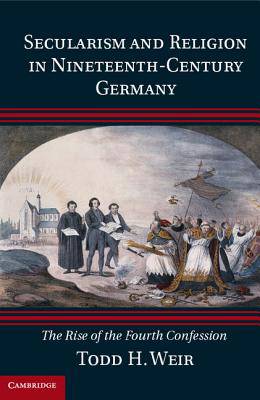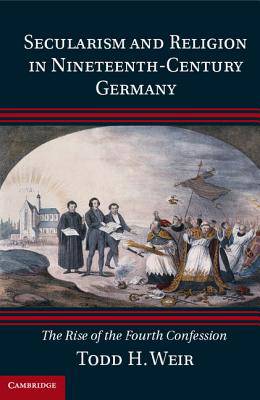
- Afhalen na 1 uur in een winkel met voorraad
- Gratis thuislevering in België vanaf € 30
- Ruim aanbod met 7 miljoen producten
- Afhalen na 1 uur in een winkel met voorraad
- Gratis thuislevering in België vanaf € 30
- Ruim aanbod met 7 miljoen producten
Zoeken
Secularism and Religion in Nineteenth-Century Germany
The Rise of the Fourth Confession
Todd H Weir
Hardcover | Engels
€ 183,45
+ 366 punten
Uitvoering
Omschrijving
Negotiating the boundaries of the secular and of the religious is a core aspect of modern experience. In mid-nineteenth-century Germany, secularism emerged to oppose church establishment, conservative orthodoxy, and national division between Catholics, Protestants, and Jews. Yet, as historian Todd H. Weir argues in this provocative book, early secularism was not the opposite of religion. It developed in the rationalist dissent of Free Religion and, even as secularism took more atheistic forms in Freethought and Monism, it was subject to the forces of the confessional system it sought to dismantle. Similar to its religious competitors, it elaborated a clear worldview, sustained social milieus, and was integrated into the political system. Secularism was, in many ways, Germany's fourth confession. While challenging assumptions about the causes and course of the Kulturkampf and modern antisemitism, this study casts new light on the history of popular science, radical politics, and social reform.
Specificaties
Betrokkenen
- Auteur(s):
- Uitgeverij:
Inhoud
- Aantal bladzijden:
- 316
- Taal:
- Engels
Eigenschappen
- Productcode (EAN):
- 9781107041561
- Verschijningsdatum:
- 21/04/2014
- Uitvoering:
- Hardcover
- Formaat:
- Genaaid
- Afmetingen:
- 155 mm x 231 mm
- Gewicht:
- 566 g

Alleen bij Standaard Boekhandel
+ 366 punten op je klantenkaart van Standaard Boekhandel
Beoordelingen
We publiceren alleen reviews die voldoen aan de voorwaarden voor reviews. Bekijk onze voorwaarden voor reviews.








